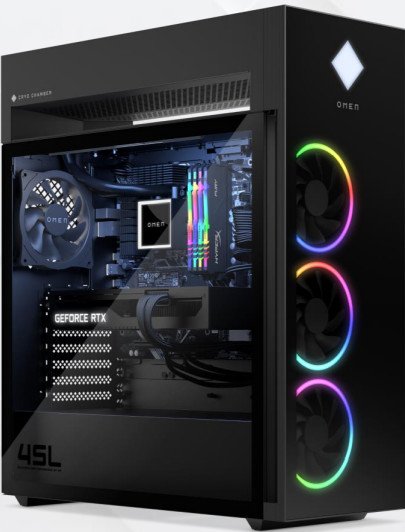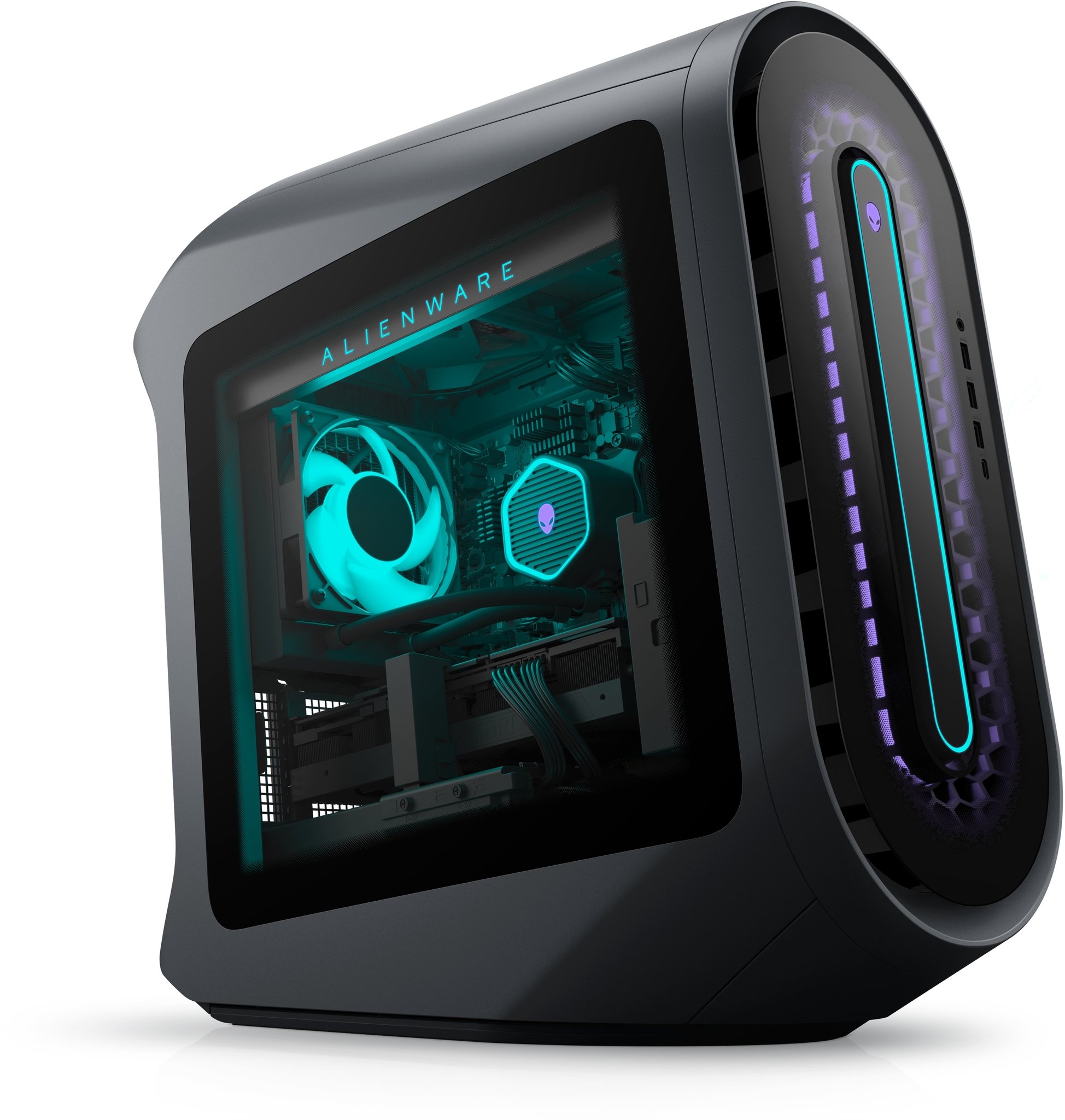HP Omen vs. Alienware desktop: Which should you choose?
Two of the best pre-built gaming PC makers, but which should you go for?
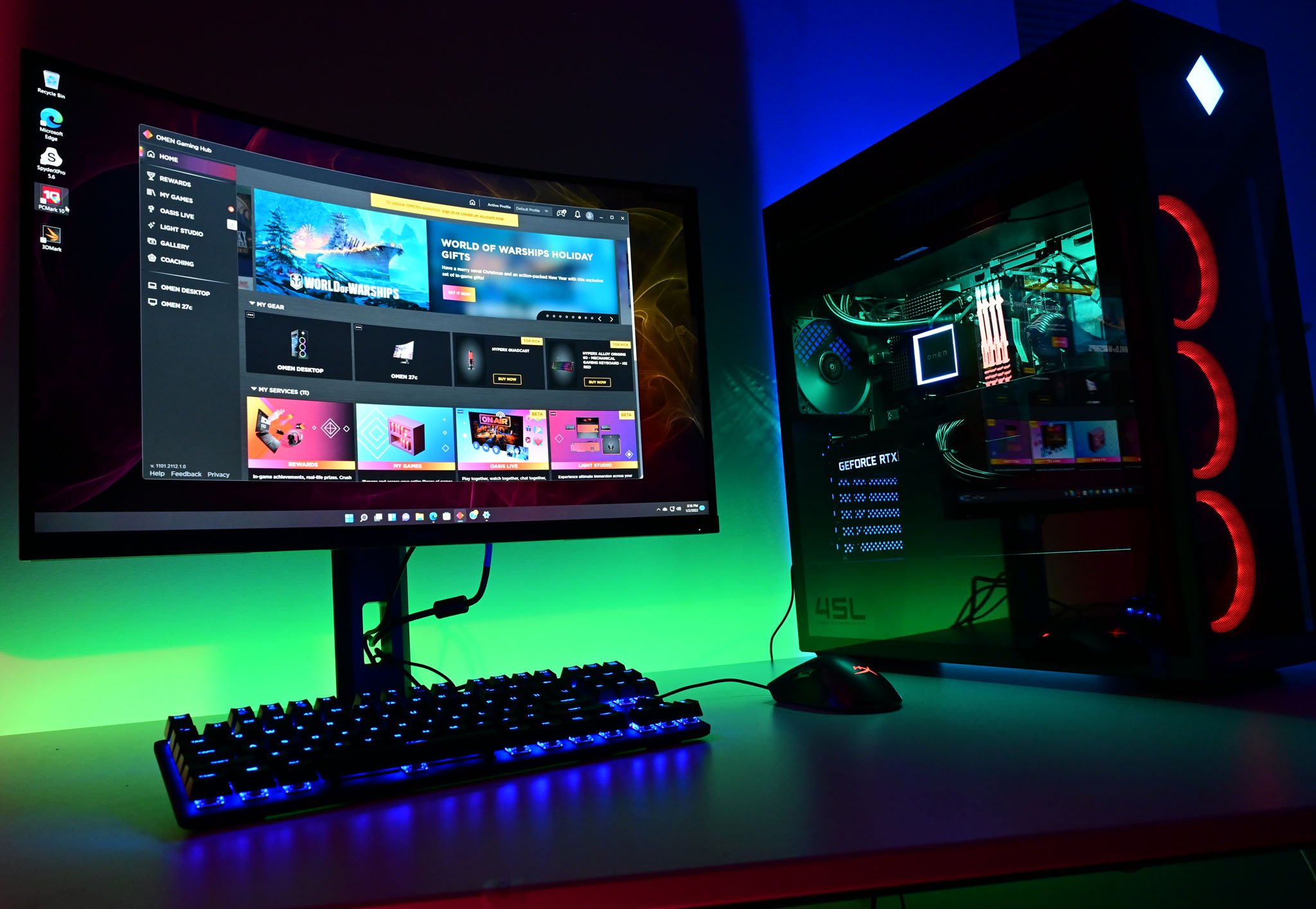
Buying a pre-built gaming desktop PC is one of the better ways right now to grab a new graphics card, but that's not the only reason to buy one. The days of building your own being the only way to guarantee a high-quality, high-performance gaming rig are long gone.
Two of the best in the business are HP and Dell, more specifically with their respective Omen and Alienware brands. If you're looking for the best gaming desktop PC, then you're going to be considering both of these, and they're both brands we rate highly.
But which is better for you? The good news is there's no real right or wrong answer, but there are a few things that could help you decide. Let's break down some of the main points.
Price
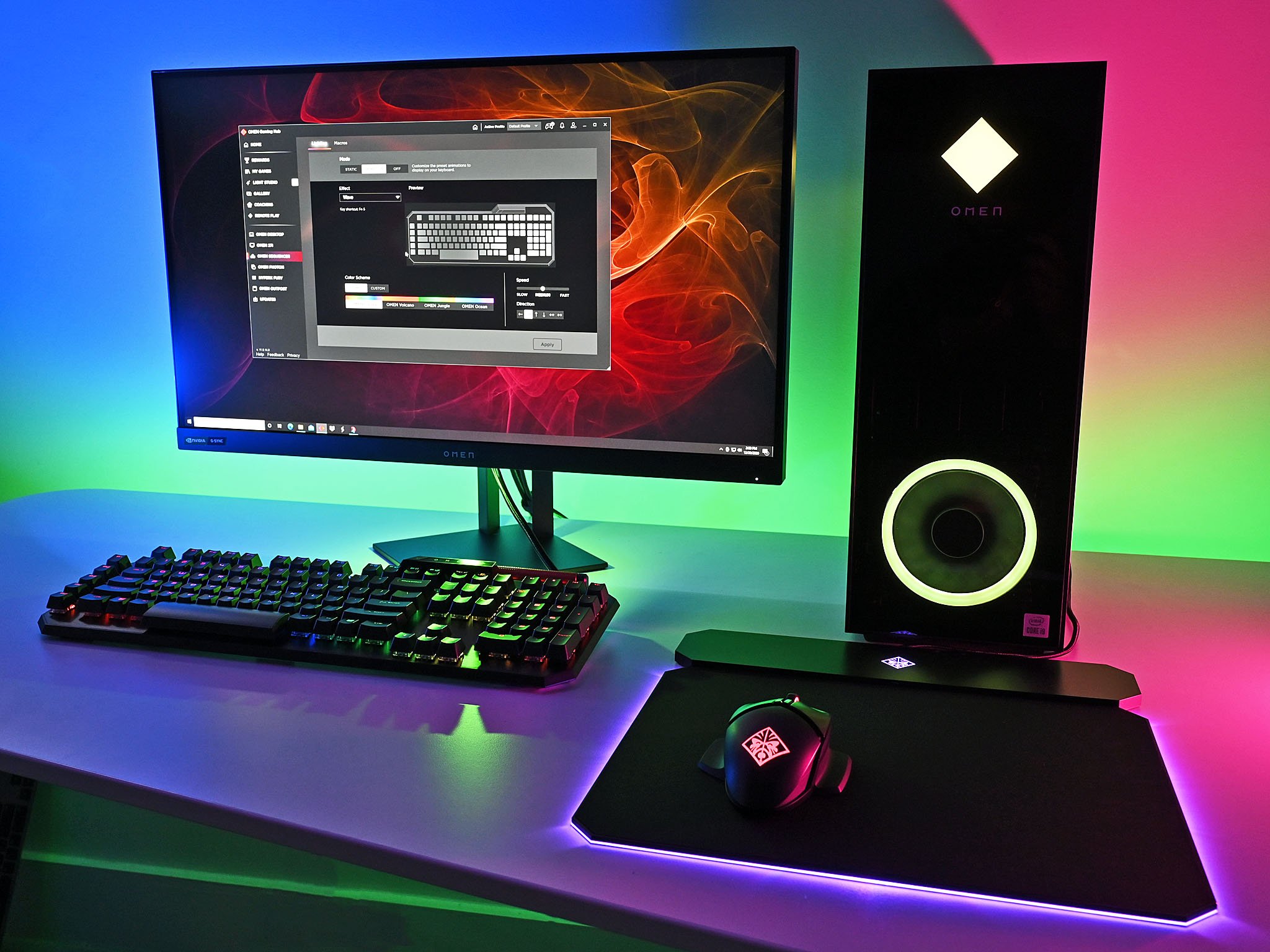
Gaming PCs aren't cheap, but equally, they don't have to be expensive. Both HP and Alienware have entry-level models that are within the reach of those shopping on a tighter budget. For Alienware, it's made easier by the fact the brand only currently offers a single gaming desktop PC: the Aurora. There are different versions, but you're getting an Aurora if you're getting an Alienware.
The absolute lowest starting price is currently $950, which doesn't get you a machine that'll crank out the upcoming Crysis 4 at high frame rates, but it does get you a solid starter machine. There are plenty of options available, too, and you can choose between Intel, NVIDIA, and AMD parts.
HP has a little more variety, with the older Omen 25L and Omen 30L being joined by the newer Omen 40L and Omen 45L. This also means a greater range of pricing, and for the true budget buyer, there's certainly more reason to consider HP Omen. The lowest price is currently an $800 Omen 25L that's still good for some of the latest titles and certainly today's most popular competitive games.
Like Alienware, there's a raft of options, and if your budget will go high enough, so too can your spec list. But if the price is important, HP certainly edges things if only for its wider choice and lower entry point.
Get the Windows Central Newsletter
All the latest news, reviews, and guides for Windows and Xbox diehards.
Performance and design
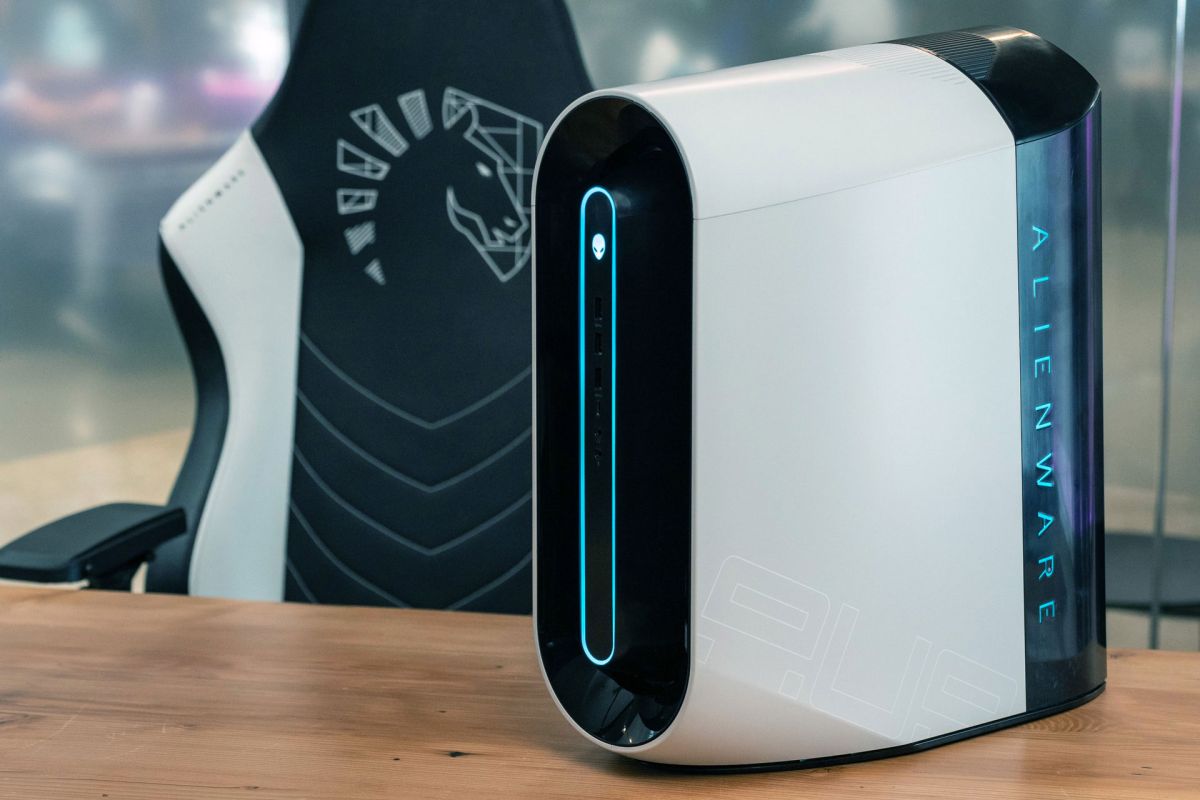
Design is one of the best ways these companies try to stand out from the crowd and draw in prospective buyers, and it's impossible to deny that Alienware does that with the Aurora. The basic chassis has remained mostly unchanged for many years, but the exterior design has always been pretty wild. An Alienware staple is an aggressive design that is instantly recognizable. And lashings of RGB.
HP, by contrast, is a little more subtle with its Omen desktop lineup, eschewing mad designs for a more muted and traditional PC tower look. But still with lashings of RGB. The respective design choices do have an impact on the ease of installing upgrades, which we'll consider later, but ultimately it's a personal choice.
What's comparable is the performance. HP arguably has an edge on the lower end, using the NVIDIA GTX 1650 instead of AMD's most basic GPU which is, in all honesty, barely better than integrated graphics. But as you go up the ladder the limit is how much you want to spend. Both companies will give you a choice of Intel or AMD processors and up to the RTX 3090 GPU from NVIDIA, the current king.
HP does have one extra party piece though with the new Omen 45L, and that's its new Cryo Chamber cooling system. It separates the radiator and its fluid from the main compartment of the PC, thus removing any heated air from the cooling equation. As a result, you get lower temperatures, and lower temperatures are a PC gamer's best friend. It may sound like a gimmick but it's not.
Ease of upgrading
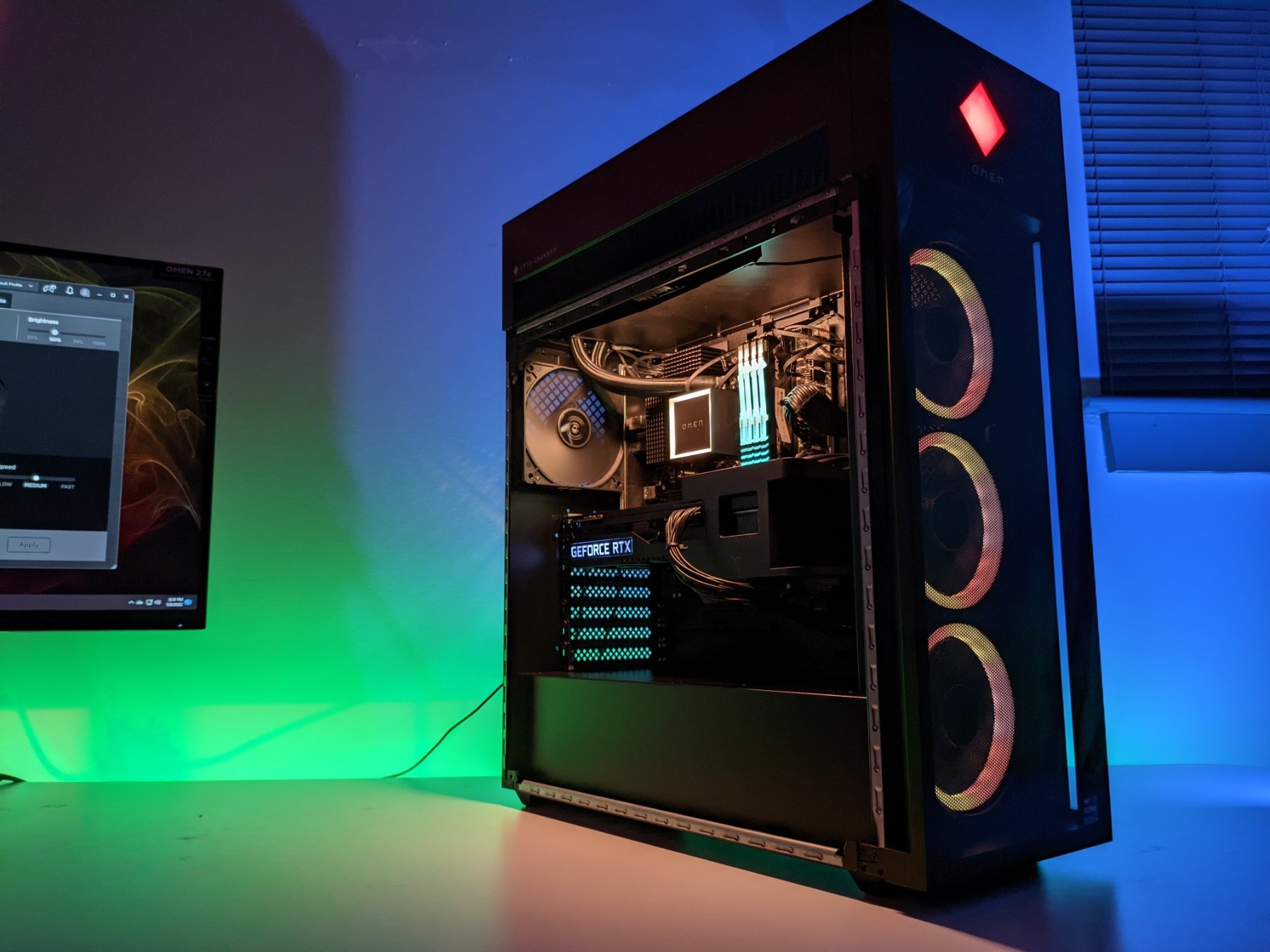
Both Alienware and HP support upgrading their respective desktop PCs and use mostly standard parts throughout. HP, in particular, is especially welcoming to future upgrades, with standard parts joined by a simple, easy-to-access design with plenty of room to work in. Upgrading to the biggest graphics cards isn't an issue, and you're free to swap out literally everything down to the motherboard if you wish.
The Cryo Chamber on the new Omen 45L is probably the only part you wouldn't upgrade, but even on this PC, everything else can be swapped out with ease.
Alienware's Aurora desktops are equally receptive to upgrades, but not quite as easily as those from HP. This is in part down to the design, and while using standard parts is absolutely fine, there's less space to work with inside the PC, with a little less freedom over using any cooler you wish, for example. The same goes for the power supply.
So, as with price, HP edges it, here for just being easier to live with.
The bottom line
Whether you get an Alienware Aurora or an HP Omen desktop, you're getting a top-tier gaming PC. There's no out-and-out bad choice, but depending on your specific hardware requirements, future plans, and importantly, budget, recommending an HP Omen is a little easier.
HP certainly has a wider selection and a more attractive entry-level model, and the added ease of upgrades in the future is also important. The HP Omen 45L is currently our top pick for the best gaming PC and its predecessor, the Omen 30L, was also its predecessor on that list. Buying HP Omen is definitely a smart call.

Richard Devine is a Managing Editor at Windows Central with over a decade of experience. A former Project Manager and long-term tech addict, he joined Mobile Nations in 2011 and has been found on Android Central and iMore as well as Windows Central. Currently, you'll find him steering the site's coverage of all manner of PC hardware and reviews. Find him on Mastodon at mstdn.social/@richdevine
